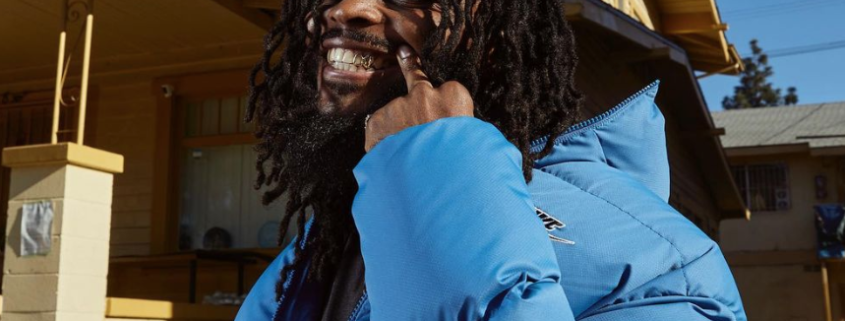Sham1016 gives L.A. more than music
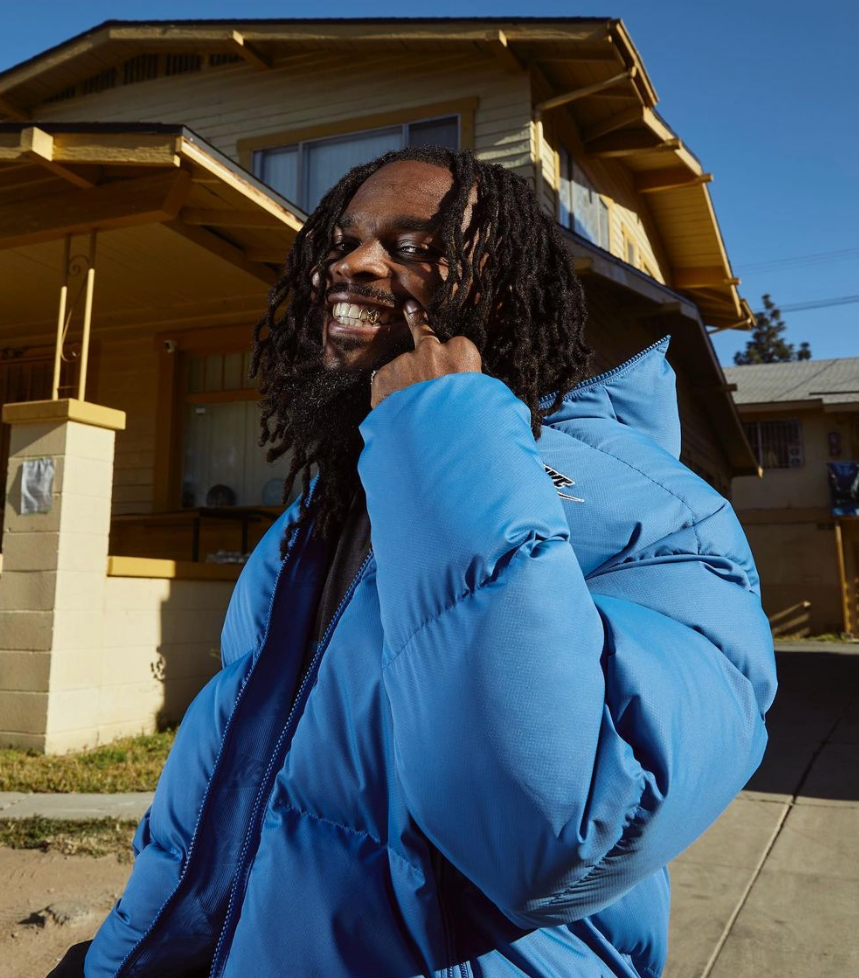
Growing up, Sham1016 recalls listening to whatever music dropped on Tuesdays when his uncle would pick him up after school. It created a foundation for the type of music he enjoyed; he cites musicians such as Tupac, Kendrick Lamar, Missy Elliot and Jodeci. Such artists instilled in him the importance of versatility and inspired him to make music about any topic he wants to explore.
A rapper hailing from South Central Los Angeles, Sham has been working on his craft for the past six years. After deciding to focus on music full-time in 2016, he has developed a lengthy and honed catalog — but he isn’t just involved in music. He’s also a graphic designer and part owner of Blacker the Berry Juicery, a juice company he and his partner, Dominique Burrell, started back in 2018. In all of his creative pursuits, he seeks to empower his community.
Repping Vermont Avenue in South L.A., Sham recounts his upbringing as one filled with family, friends and a sense of community but also marked by violence and incarceration. His connection to the community is almost second nature, he said, one which has rewarded him with countless opportunities.
“Growing up in L.A., you’re going to have a sense of pride,” Sham said. “Specifically the block that you grew up in, the hood you grew up in, the community that you grew up in … You always want to make sure you’re doing something for your community and where you come from, that’s ingrained in us … You want to put on for the people that represent that.”
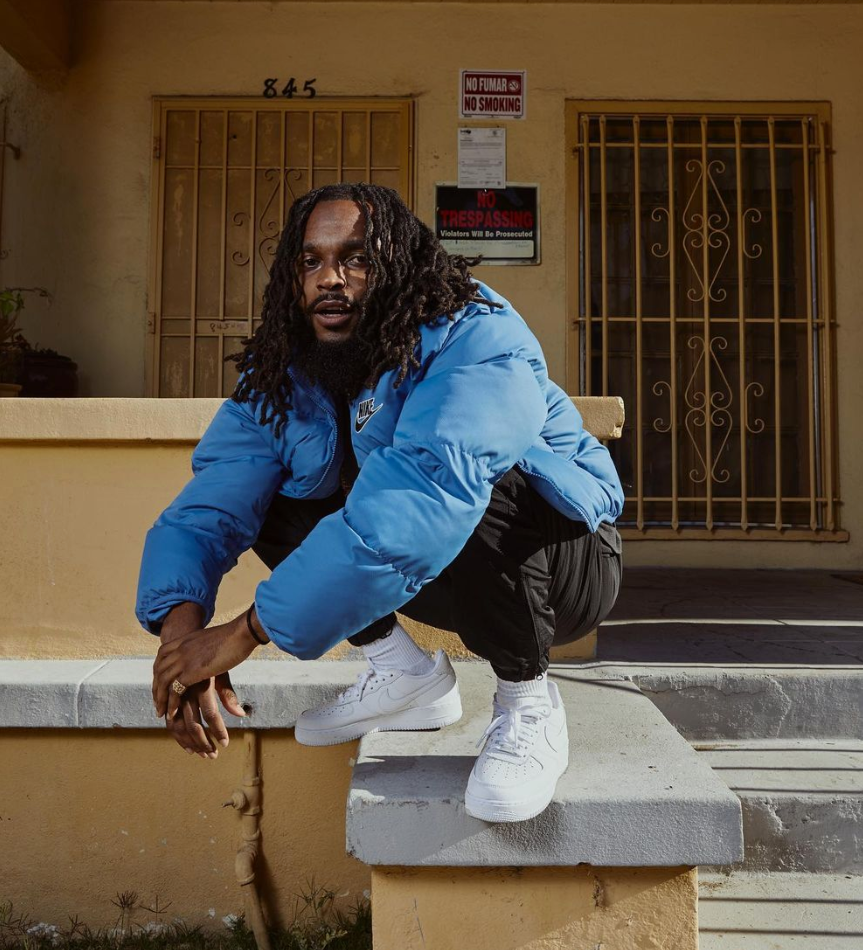
Sham has already reached enormous milestones in his rap career — he’s proud of going on tour with prominent L.A. rapper Bino Rideaux and having his song, “Internet Bangers,” played on the “L.A. Leakers” radio show. But despite his popular success, he’s most proud of how his music is being received by the L.A. youth.
“Even with the [song] ‘Play Ball,’ one of my close homies, he works in the juvenile system, [told me that] the kids heard it, and you know, these are kids that did some shit in the streets, but they’re reciting my shit,” Sham said. “I’m talking about you got enemies from different hoods that don’t fuck with each other, shaking hands and reciting the lines … that’s bigger than a GRAMMY.”
He plans to work with his engineer to provide local kids with the necessary equipment for them to create music. For Sham, being able to have a positive impact on his community is an essential pillar of his career.
Being community oriented is just how Sham does business. For the music video to his song “Play Ball,” his first instinct was to get in touch with local video producer Ten Fifty. The Inglewood-based producer recalls first working with Sham a year after they met while shooting a podcast for a mutual friend and being drawn to the rapper’s creativity and love for his neighborhood during their first collaboration.
“[Sham] said ‘Well, we’re gonna go to this corner spot … I just wanna make sure we get this corner of the block, I wanna make sure we get this street sign,’” Ten Fifty said.
With Sham’s only requirement being to highlight the Vermont Square street sign, Ten Fifty was given creative liberty to decide what else to add for the video. Ten Fifty remembers some of the initial difficulties he had when working on the video, trying to match Sham’s ever-evolving track with dynamic visuals. He ultimately gathered inspiration from the various instrumentals Sham flipped in the song, deciding to pay homage to those original songs’ music videos to create something new.
“I took those ideas of how they colored it and how they shot it and just applied it to my video,” Ten Fifty said. “Without looking into those videos, it probably just would have been a simple good quality video, but not as creative as it turned out to be without [us] thinking at the moment, ‘All right, what [are we] going to do with this?’”
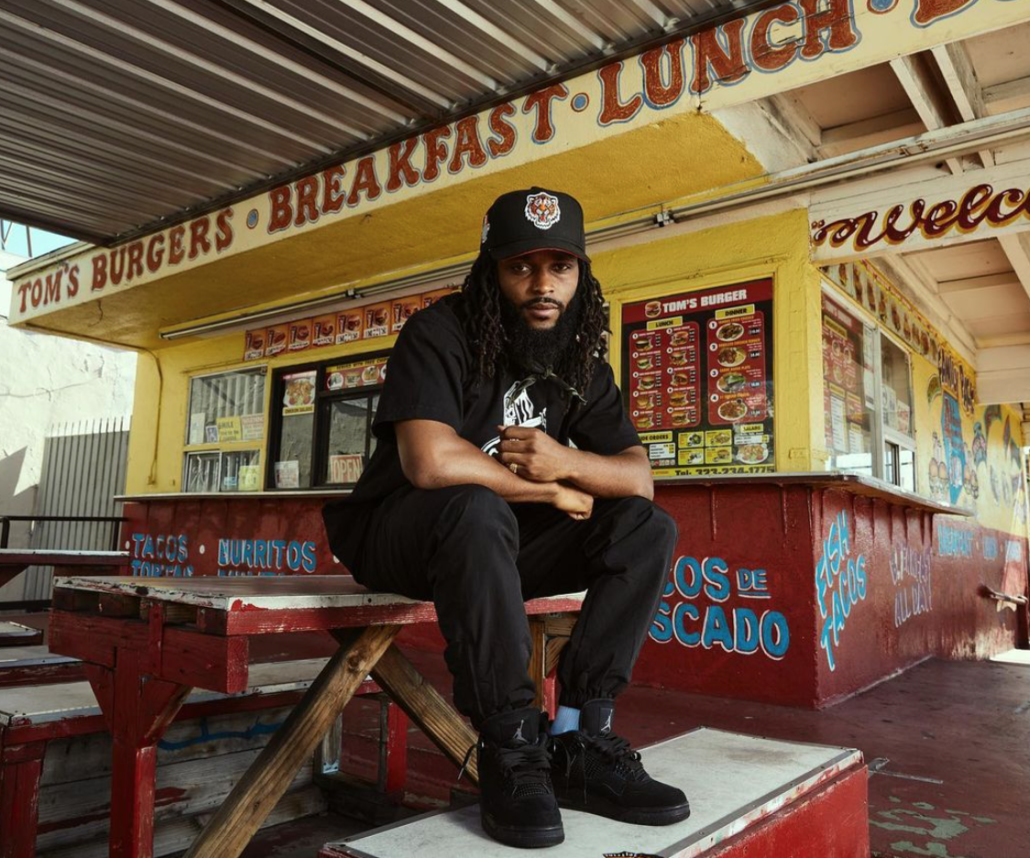
As reflected by “Play Ball,” Sham’s pursuits seek to flip and share his favorite parts of life with his community. That philosophy also extends to Blacker the Berry Juicery. He and Burrell began the juice business with a goal: to extend some of their favorite healthy drinks to every corner of L.A., where marginalized communities are often deprived of affordable options.
It’s not just L.A.’s food deserts they focused on. The business also looks to bring awareness to the insufficient food options in the United States prison system, and works to provide better options for incarcerated people.
“Blacker the Berry Juicery is a plant-based social justice construct addressing food insecurity and food apartheid within disadvantaged communities,” Burrell said. “Two of our long-term goals is to collect data to advocate for legislation and change the laws associated with prison food to provide [those incarcerated] with healthier options. But, we are also using that data to allow us to target our food and juice options to [the disadvantaged] audience.”
Both Sham and Burrell come from areas that offer little access to healthy food — L.A. and Richmond, Va., respectively. Both see that this issue isn’t just around their homes, but is widespread throughout the U.S. Additionally, both have family and friends who were or are incarcerated, and much of what they’ve heard is that the food in the prison system is “awful.”
“Just because people are incarcerated [or] in jail — sometimes they’re not even guilty of the crimes that they’re in there for — that doesn’t mean that they shouldn’t have a healthier food option,” Sham said. “The best that they’re going to get is a V8 juice, and most of that is sugar.”
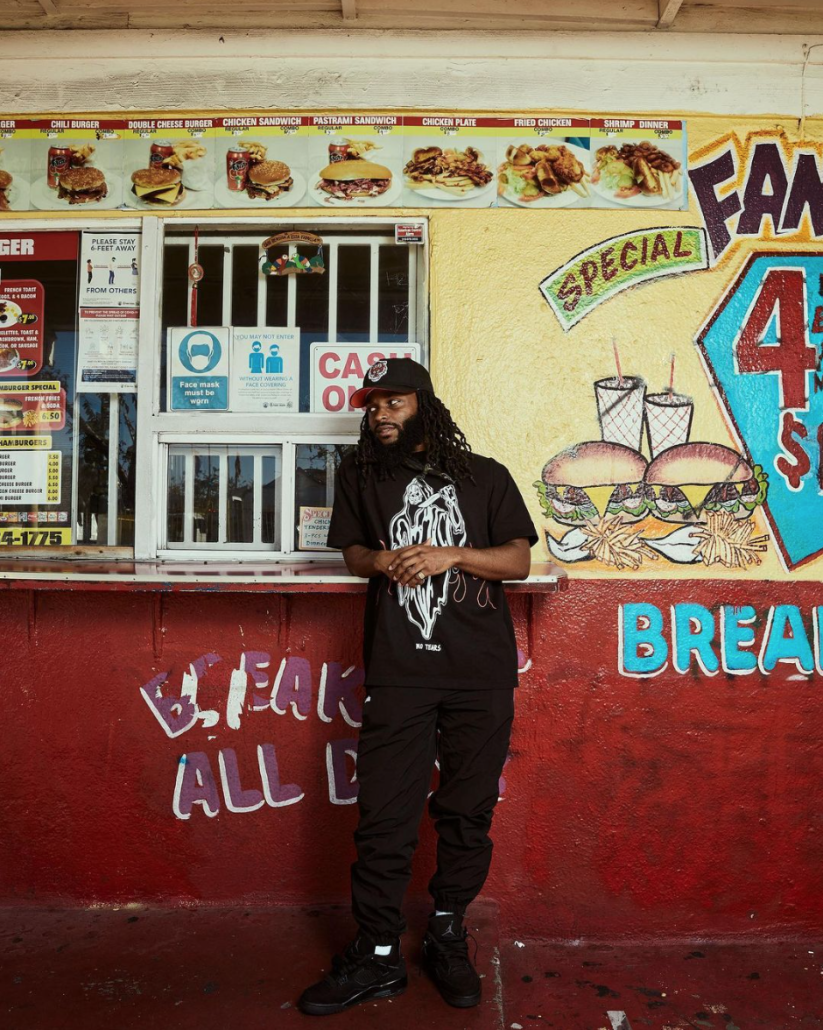
As if Sham’s life wasn’t busy enough, he released an album on April 8 titled “Foul Play” following up his February release of the lead single “Hurt Yourself.” He said he feels that his latest project has something special about it — beside the potential to catapult him into people’s playlists.
“With ‘Foul Play’ you should expect greatness, just a level up,” Sham said. “It’s better than ‘Everybody’s Enemy’ … Don’t expect it to be what you expect from an L.A. artist.”

